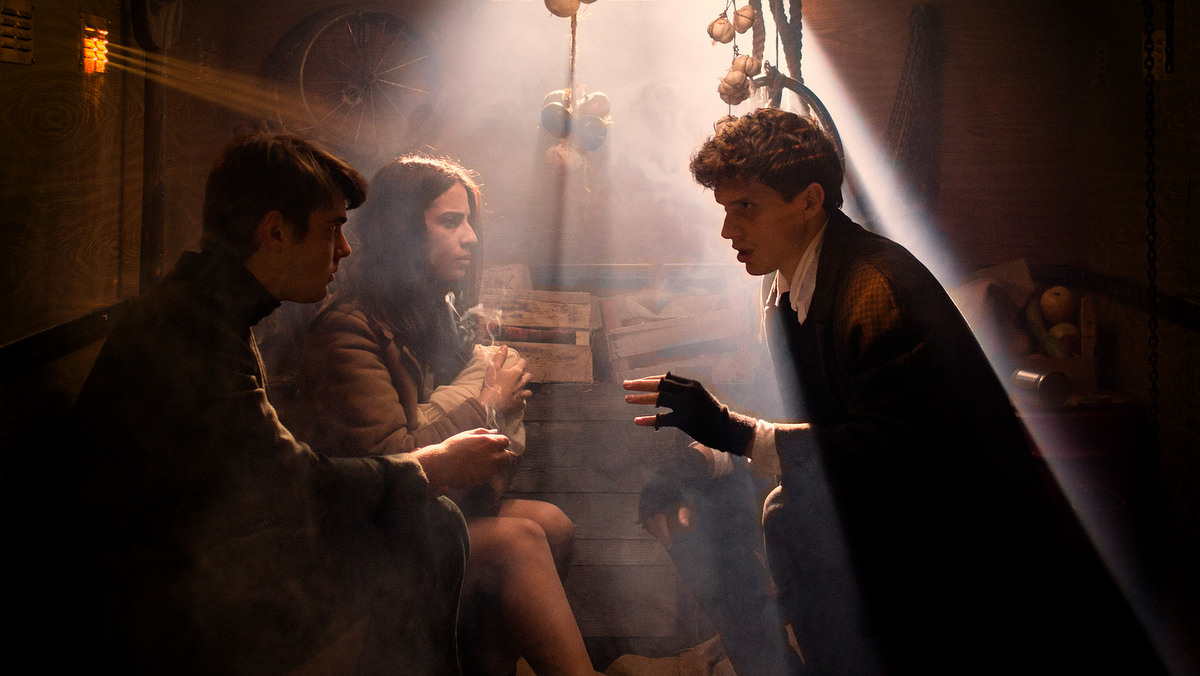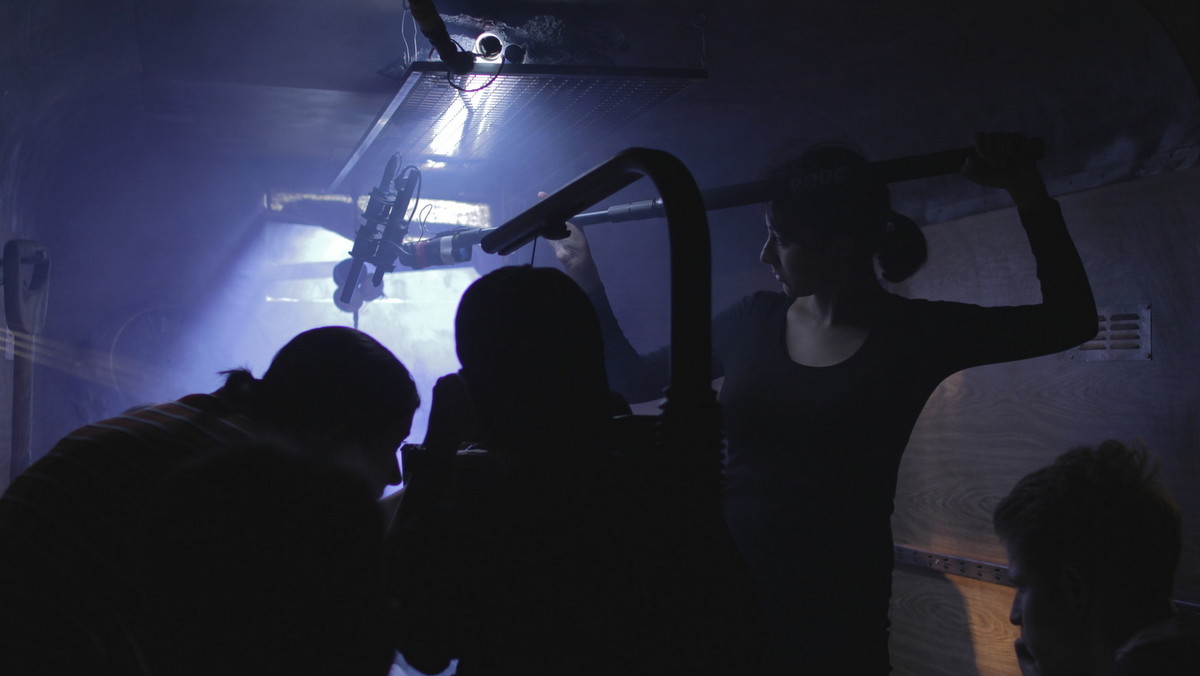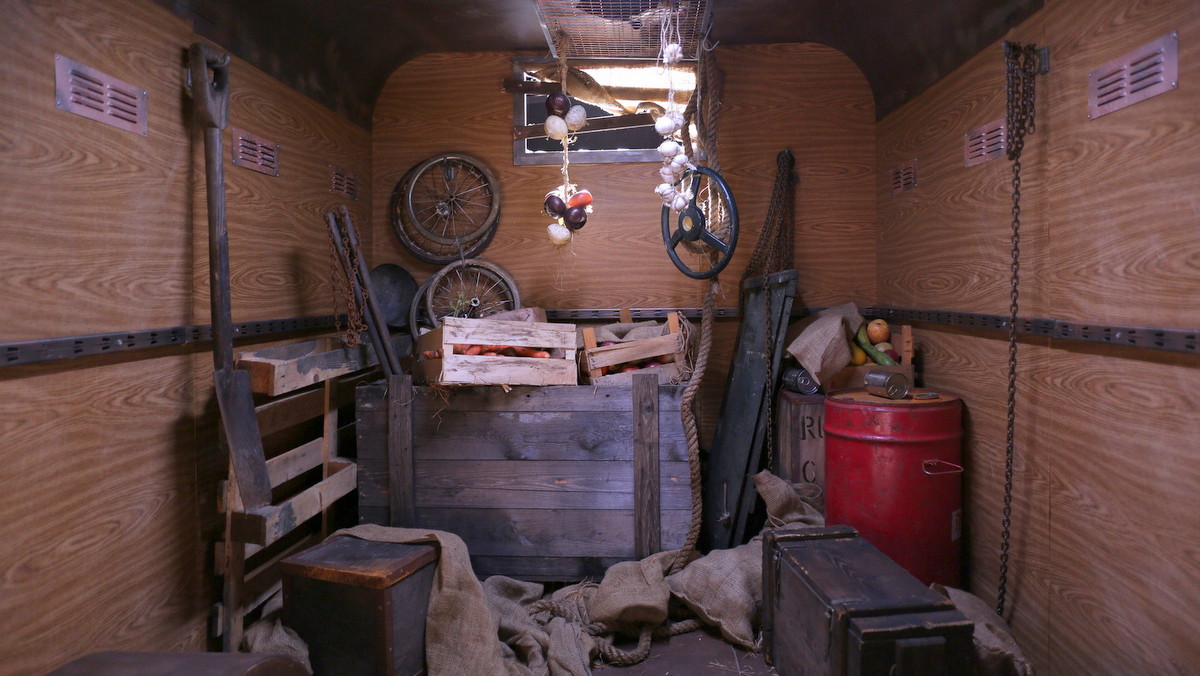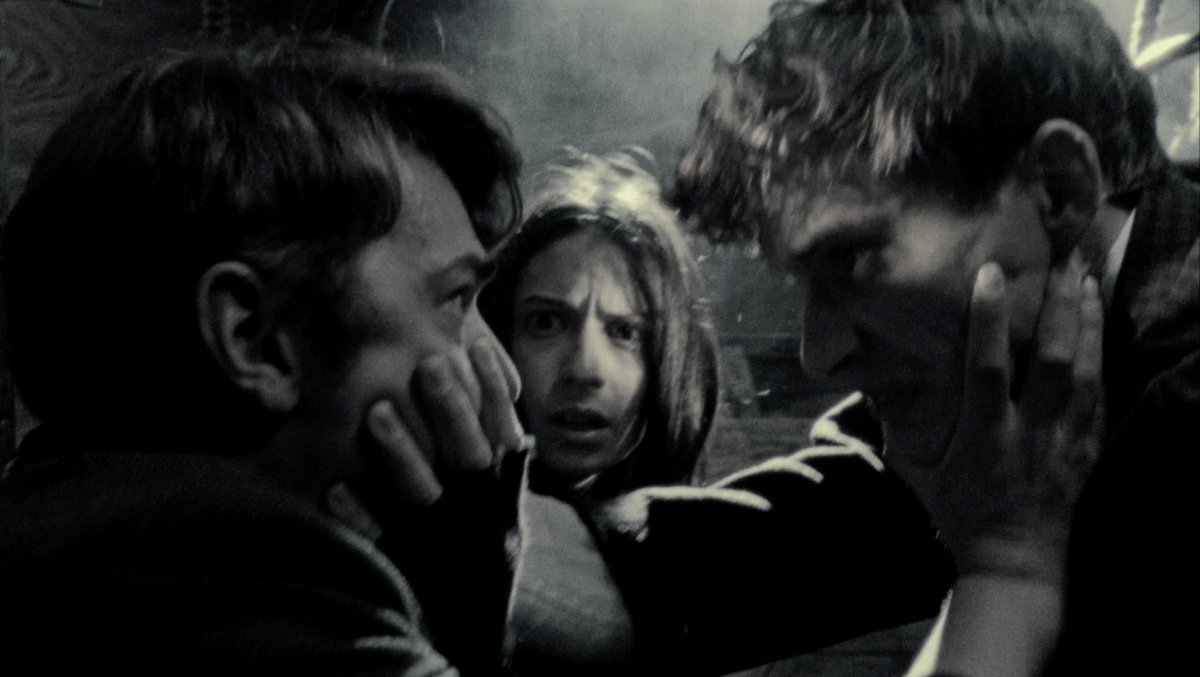
Quiet Crossing is a strong short political drama, filmed by the Film BA students at the Westminster Film School in London. Quiet Crossing is directed by Patrik Krivanek who is a Czech film Director, Producer and Writer. He studied Film at the University of Westminster (Westminster Film School) in the United Kingdom, where he was the Vice President of the Film Society and Director of the Westminster Film Festival.
It is 1967, and some East German students (opponents of the communist regime) try to migrate to West Germany in the back of a food delivery truck. They must remain quiet at the border crossing point, or they will be discovered and executed for their anti-political activities. Anna’s and Yans’s sleeping baby on board is a time bomb that can explode at any time, and yet the unexpected happens.
Patrik Krivanek talks to us about his work and more. Hi Patrik! Good to talk!
indieactivity : Whats your experience with the story, writing and production.
Patrik Krivanek : Rik Hulme came up with an idea after reading a book called Stasiland and was interested in trying to write a short story about the horrible, life changing choices people in Berlin had to make during Communism. I really wanted to film this! I was born in Czechoslovakia in 1987, the country at that time was still heavily oppressed by the Communist regime in the same way the people in East Germany were. It was a very personal story for me. Stories like this were all around me during my childhood.
Trailer for Quiet Crossing (2019) by Patrik Krivanek
At the time, I was very young and could not fully understand the fear felt by the people, including my family, living behind the Iron Curtain. However, when I was growing up, I heard many stories of people who tried to escape and it has always been very interesting for me to research the reasons why people are risking their lives to do so. Throughout my life and at school, I’ve read many articles and books. I was well educated about this subject, but I wanted to explore it myself through the medium of film. I was always looking for the right story to start to observe this topic more and Rik’s screenplay was very captivating for me. It was the script that I wanted to work on.
indieactivity : Why was it important for you to share your story: Quiet Crossing?
Patrik Krivanek : Because it’s a very important topic and the history repeats over and over again, but in altered forms. Even though Quiet Crossing is set in 1967, it tells a timeless tale that is still applicable to many people’s struggles worldwide today. Oppressive political regimes still reign. Families have no choice but to flee the tyranny of their home nations. The battle to truly be free from political injustice is still, for some, more difficult than ever before. We kept the story set in 1967 as East Germany in the ’60s represented a “wall” for us. Exactly the same type of wall which is sadly still being built between nations all around the world.
indieactivity : What was your first project?
Patrik Krivanek : I started experimenting with cameras when I was very small but I wasn’t really into films then. I was a child actor so I was always around films, but it took me a while to direct my first project which was also written by me. It was a short film called “The Knocking” which I made with almost no budget and a crew of 3 people shooting from my mobile phone. With this film, I was also very successful at the film festivals all around the world – sometimes winning against the films shot on Arri Alexa. This gave me the motivation to do bigger films, to capture bigger stories, then taking the role of the writing director.

indieactivity : Which scene (that made the cut) was the hardest to shoot?
Patrik Krivanek : Definitely the choking scene as all the crew members were scared that our actors would kill themselves. They were very engaging with their roles and, as we were shooting on 16mm film and not digital, we couldn’t just stop it and take another take – I simply had to let them keep fighting for quite a long time to have everything I needed. Everything was also happening in a very cramped space – the film set was 2 meters long and 1.5 meters wide with three actors and seven crew members close to them – many other crew members even couldn’t see what was happening as there was simply no space. We also filmed using an old style with no external monitors!
indieactivity : What worked better in this latest production that mightn’t have worked so well in the last one you did?
Patrik Krivanek : It was my first experience working with 16mm film. Respectively, it was my first time directing film shot on 16mm film. Shooting film requires even better planning in pre-production and better effectivity on set – fewer retakes and better performance of your cast and every department. Whilst shooting on film, I learned to be more effective in pre-production and during the production. In comparison with previous productions our plans were much more detailed, and we were more effective in every aspect. As we had only 8 hours to shoot in the studio we were very time-effective, much more so than on productions before.
indieactivity : Is there anything about the independent filmmaking business that you struggle with?
Patrik Krivanek : I believe that independent productions always struggle with the financing of their projects. It’s hard to finance projects and very often there is some sacrifices to make those passion projects happen. On the other hand, it’s also the beauty of it… I love to challenge myself and I am always trying to make films bigger than it’s possible.

indieactivity : Where do you think your strengths lie as a filmmaker?
Patrik Krivanek : I am known for creative visual storytelling with an excellent eye for detail and high level of authenticity in my stories. I am also always trying to build a very good relationship with the crew and actors which helps me when working with them. I believe that actors working on my films are always well prepared, as I spend quite a long time with them in the pre-production (breaking down the script and rehearsals). I also believe in the talent of everyone on the set and that the projects can benefit from their creativity. To my actors or the crew, I always give constructive and positive feedback and I am always honest with them.
indieactivity : How was the film financed?
Patrik Krivanek : Quiet Crossing cost £1000-1100 in total production including 40% festival fees (which I paid myself) – so very low budget. As it was a student project, we didn’t pay crew members and we were also shooting in the film studio at the Westminster Film School in Harrow, London. Filming equipment and the film stock (we only had 2 rolls – 800ft) was also provided by the university and without it the budget would be much higher. Our university also contributed by paying about 50% of our total budget! The rest was the crew contributions.
indieactivity : What do you hope audiences get from your film?
Patrik Krivanek : I hope that audiences who watch Quiet Crossing will be captivated by the story and the journey of our characters. I hope that it will make our audience think about the story and make them want to compare it with similar stories that are still happening all around the world. I want our audience to see the world differently than before. I also hope that the film will remind people that there are still people struggling worldwide today and remind them that oppressive political regimes still reign. I would like this film to make people aware of the fact that there are still people fighting and trying to escape to save their lives but also the lives of their families.

indieactivity : What else have you got in the works?
Patrik Krivanek : My next two projects are called ‘Muddy Shoes,’ which is a short 20-minute film written, directed, and produced by myself, and a feature film called ‘Two Words as the Key,’ which I am executive producing. ‘Muddy Shoes’ is a powerful and personal story about an important time in history, told from a unique viewpoint. It is a psychological description that depicts the atrocities that were carried out on defenceless people during WWII.
‘Muddy Shoes’ will be shot in two different formats; 35mm digital and super 16mm film. Each section will be shot in an equally distinctive format to separate the two different time periods as the film’s story is based in 1943 and 2010.
‘Two Words as the Key’ is an independent feature film directed by the Czech Film Director, Dan Svatek, and with a production budget of just under $2.5 million. It will be shot all around the world (USA, India, Nepal, Indonesia, Japan, Czech Republic, Slovakia, Lithuania, and Poland) in 2020-2021.
Together with Dan and Josef Formanek (the writer of the book ‘Two Words as the Key’), I promoted this film at The Marché du Film Producers Network in Cannes during the Cannes Film Festival 2019. If you were enthralled by the atmosphere of films such as Magnolia, Life of Pi, Baraka, or Babel, then you have something to really look forward to.
Tell us what you think of the interview with “Patrik Krivanek” What do you think of it? What ideas did you get? Do you have any suggestions? Or did it help you? Lets have your comments below and/or on Facebook or Instagram! Or join me on Twitter @oladapobamidele
Follow Patrik Krivanek on Social Media
Website
IMDb
LinkedIn
Twitter
Instagram
Vimeo
In Camera by Naqqash Khlalid Launch on VOD April 29
Naqqash Khlalid’s Directs Nabhan Rizwan. In Camera stars an EE BAFTA Rising Star Award Nominee.
2025 Philip K. Dick Sci-Fi Film Festival Award Winners Announced
Vanessa Ly’s Memories of the Future Awarded Best PKD Feature
Dreaming of You by Jack McCafferty Debuts VOD & DVD for April Release
Freestyle Acquires “Dreaming of You” for April 15th Release
Hello Stranger by Paul Raschid set for London Games Festival & BIFFF
The film Is set for an April 10th Premiere at The Genesis Cinema in London (LGF) and BIFFF
Daydreamers Official Trailer by Timothy Linh Bui: Released by Dark Star Pictures
Daydreamers Vietnamese Vampire Thriller – May 2nd release
Afternooner by The Harrow Brothers: Funniest Movie of the Decade on VOD & DVD April
Freestyle Acquires “Afternooner” for April Release









